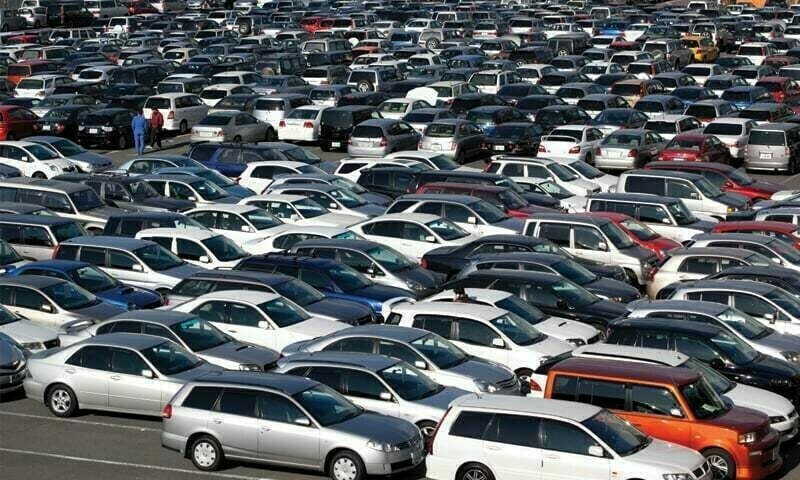KARACHI: As the International Monetary Fund (IMF) is pushing the government for rationalisation of tariffs on the auto industry, the All Pakistan Car Dealers and Importers Association (APCDIA) has urged the government to allow the import of used vehicles with certain conditions through banking channels in the budget FY26.
This step will eliminate the outflow of foreign exchange through the kerb market and will promote a documented economy as all transactions will be done through banking channels, the association said, adding that this will not only promote tax culture but also make all importers bound to submit sales data to the Federal Board of Revenue (FBR) to bring transparency in all this process.
In a letter to Special Assistant to Prime Minister on Industries and Production Haroon Akhtar Khan, APCDIA Chairman Sardar Irfan Saleem said duties and taxes should be based on the depreciated invoice value of the imported vehicles. It is the need of the hour to simplify import duties and tax structures to make them easily comprehensible for investors/commercial importers and to promote ease of doing business.
He said regulatory duty on all types of vehicles should be abolished while duty on electric vehicles (EVs) up to 50kV should be reduced so that more public convert to EVs which can save fossil fuels import and environmental damage can be minimised.
The depreciation allowance per month for the used vehicle should be 2pc of the maximum selling retail price value, and it should start from the month and year of its registration. A maximum of 60pc allowance should be permissible.
With the above-mentioned tariff and import policy reforms to allow the commercial restrictive import of used vehicles, the government would get more than Rs120bn in revenue.
Allowing the commercial import of vehicles will create healthy competition between imported and locally produced cars. This competition will benefit the general public by providing them with more options, enabling them to find a vehicle that meets their needs and offers better value for money, he said.
Another benefit of allowing restrictive used vehicle imports is that the government will have complete control and knowledge of import data to monitor the foreign exchange outflow and inflow of duty and taxes, Sardar said.
He said for over four decades, local car assemblers were given numerous incentives and over-protection to get the required results. They were required to localise the main components of car assembling lines, but unfortunately, they are still importing most of the heavy parts and only buying some low-value parts from local vendors.
None of the companies has adhered to the deletion plan they agreed upon at the time of inking the agreement with the government, which included indigenous/local production of all the components of the cars. These companies have also failed to comply with the requirement for Technology Transfer. After four decades, they are still importing CKDs/SKDs, resulting in an import bill totalling billions of dollars.
The local assemblers have not been able to export till now even though they have enjoyed preferential treatment for the last four decades, he said.
Published in Dawn, May 13th, 2025


